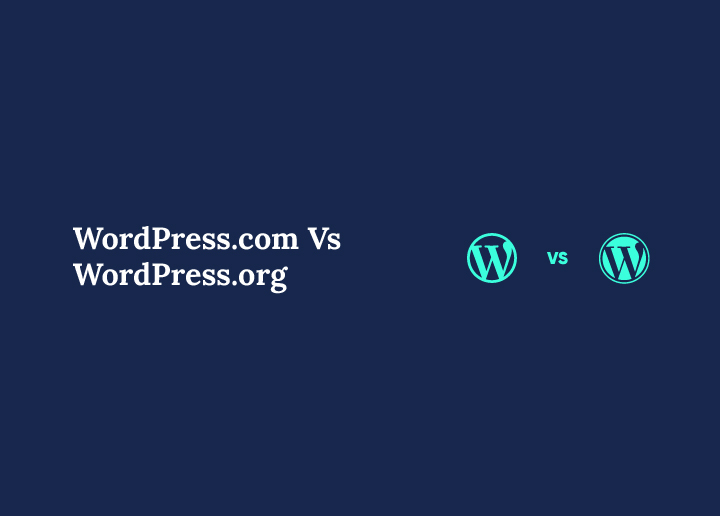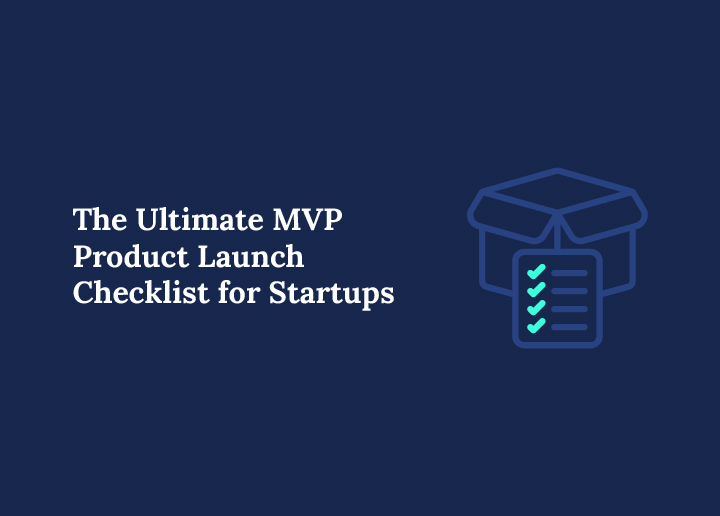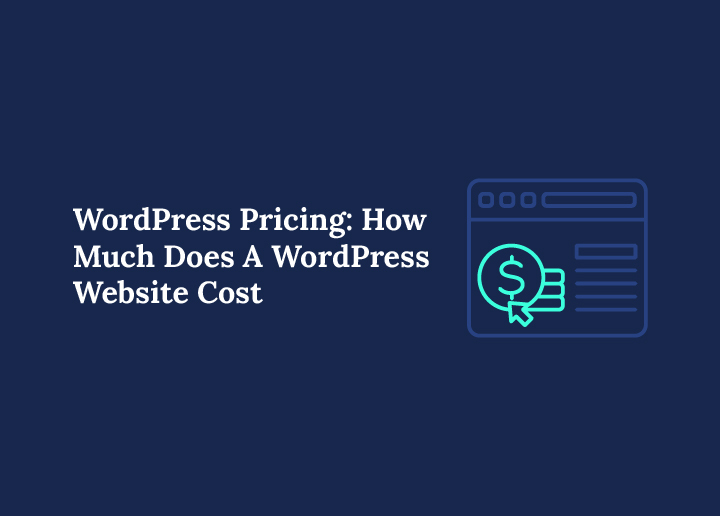Do you know many people still think that WordPress.com and WordPress.org are the same? Well, it’s an honest mistake as both platforms seem identical and often confuse website owners into making the wrong choice between WordPress.com vs WordPress.org for their website needs.
WordPress is a powerhouse in the web world with unmatched capabilities and functionality like no other platform. However, only a few know that WordPress comes with two different platforms for different needs. WordPress.com and WordPress.org are like two distant cousins but with different capabilities and differences that need to be understood, especially by beginners.
With these distinctions, you can make the right choice for your blogging needs and create a website on either one of the platforms that can align with your business goals. For those new to the WordPress CMS platform, we are here to guide you through two of its power-packed platforms with a comprehensive comparison of both.
So, let’s get started.
What is WordPress? A Quick Overview
WordPress is a powerful, open-source content management system (CMS) that allows users to build and manage websites without any advanced coding knowledge. Originally launched in 2003 as a blogging platform, it has evolved into the most popular website-building tool in the world.
With WordPress, you can create anything from personal blogs and portfolios to business websites, online stores, and even membership platforms. It offers thousands of themes and plugins to customize design and functionality, making it an incredibly flexible and scalable solution. Whether you’re a beginner or a developer, WordPress makes web creation easy, affordable, and fully under your control.
WordPress.com vs WordPress.org: The Ultimate Overview
Let’s first compare in detail:
Overview of WordPress.org
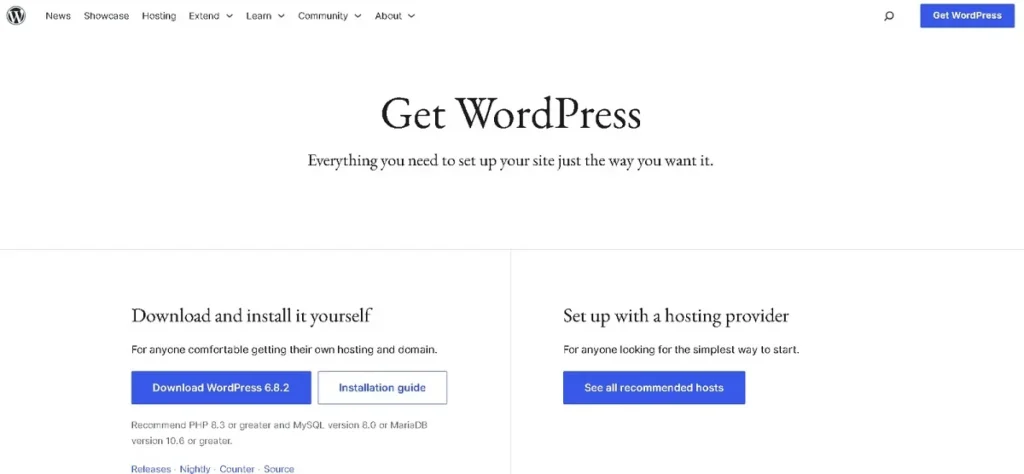
WordPress.org, i.e., the more popular WordPress version, is a self-hosted, open-source, and 100% free-to-use CMS platform. It is a powerhouse to build all kinds of websites, from a sweet and simple blog to a big e-commerce site.
It is one of the easiest CMS platforms to manage. From WordPress development to WordPress maintenance and management, you can get cracking on WordPress with basic training and the urge to learn!
With additional plugins and tools, you can create a beautiful online store, business website, portfolios, and much more with WordPress.org. From flexibility to customization with advanced plugins and tools, you can enjoy complete control over your website with WordfPress.org.
You only need to note that since it is a self-hosted platform, you’ll have to purchase hosting for your WordPress website. However, you can get many affordable web hosting options to host a WordPress website.
Keep Your WordPress Website in Safe Hands
Trust us with a WordPress website that aligns with your needs with the best WordPress Development Services.
Overview of WordPress.com
WordPress.com, often confused with WordPress.org, is a profit-hosted blogging service operated by Automattic, the company led by Matt Mullenweg, a co-founder of WordPress. Since its launch in 2005, it has become the largest WordPress installation in the world.

This connection sometimes provokes confusion between WordPress.com and WordPress.org, the open-source software for building websites.
Unlike WordPress.org, WordPress.com offers six hosting plans ranging from a free version with basic features and restrictions to Entrepreneur and a VIP version for large enterprises. WordPress.com basically takes care of security and maintenance for you through a pre-configured WordPress hosting environment with additional features and improvements.
Also Read: WordPress vs Contentful: Which is the Better CMS
Want a quick breakdown? Check out this video for a clear explanation of the differences between WordPress.com and WordPress.org:
WordPress.com vs WordPress.org: A Quick Comparison
Before getting into the technicalities of both platforms, let’s have a quick comparison between both for a better understanding:
| Features | WordPress.com | WordPress.org |
| Hosting | Comes with managed hosting | Self-hosted |
| Cost | Download for free and upgrade to a paid plan for more premium features. | Download for free and pay for domain name and hosting yearly/monthly to launch a website. |
| Themes | Limited theme support with limited themes option in the WordPress repository. No customization allowed. | Full theme support with multiple free.paid themes to download. Full customization is available. |
| Plugins & Tools | Has an in-built plugin system to add advanced features. No plugin customization is allowed. | Download free/paid plugins without any limitations to customize features as you like |
| SEO Features | An SEO-friendly platform but limited SEO control with no access to advanced SEO plugins and tools | Advanced SEO support with the option to add multiple SEO plugins to enhance online visibility |
| Analytics | Comes with in-built analytics. Does not allow third-party analytics tools | Can install third-party analytics tools with more powerful features to track website data |
| Maintenance | No worries regarding maintenance. The platform takes care of all the updates, backups, and optimization. | Fully responsible for maintaining the site with regular updates and creating backups. Can opt for WordPress maintenance and support services |
| E-commerce store | You cannot create an online store with a free plan. You must either switch to a self-hosted platform or buy a paid plan to create an e-commerce website. | Best platform for e-commerce stores with multiple e-commerce plugins like WooCommerce and other features for online visibility |
| Support | Come with free support on all plans with resources like forums, webinars, and videos. Premium email support starts with the Starter plan, and live chat support is included with the Explorer plan and higher. | Comes with a large support community of WordPress developers. Multiple resources, forums, videos, and articles can be found to resolve queries. |
WordPress.com vs WordPress.org: A Detailed Comparison
Let’s now compare both the platforms in detail below:
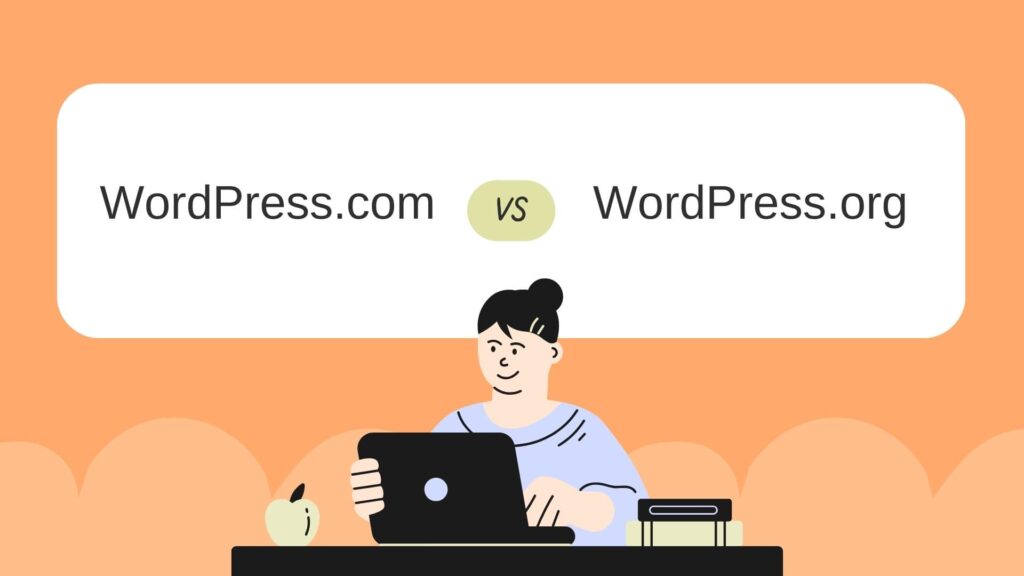
Hosting & Control
Let’s explore how hosting and control differ in WordPress.com vs WordPress.org:
WordPress.com: This is a fully managed platform, which means hosting is included automatically with your plan. You don’t have to worry about setting up a server, configuring databases, or handling updates. Everything from backups to security patches is handled by WordPress.com, making it ideal for beginners who want a “set-it-and-forget-it” solution. However, this convenience comes at the cost of limited control. Especially in the free and lower-tier plans, you cannot access your server files or make advanced customizations. You also don’t get access to FTP or cPanel, which restricts your ability to fine-tune your website.
WordPress.org: With WordPress.org, you need to purchase hosting separately through providers like DreamHost, Kinsta, Hostinger, or others. While this requires some technical setup, it gives you complete control over your website. You have access to your entire file structure, databases, and server environment. Developers and advanced users can customize every detail, from server configurations to PHP settings. This flexibility allows for much deeper personalization and optimization, making it the go-to option for agencies, developers, and serious website owners.
Customization and Themes
Let’s dive into how WordPress.com vs WordPress.org compare when it comes to customization and themes:
WordPress.com: Customization capabilities on WordPress.com depend on your plan. Free and Personal plans are limited to a curated selection of themes that can only be adjusted within the provided customization panel. You cannot install third-party themes or edit theme files unless you upgrade to the Business or Commerce plan. Even then, your options are more restricted compared to self-hosted WordPress. This makes it less ideal for users who want full design freedom or need to implement a highly specific brand identity.
WordPress.org: With WordPress.org, the sky’s the limit when it comes to design. You can upload any theme, free or premium, from the WordPress theme repository, marketplaces like ThemeForest, or custom-built designs. Not only can you change layouts and colors, but you also have access to theme files, allowing for advanced edits using PHP, HTML, or CSS. This kind of granular control makes WordPress.org perfect for creative professionals, agencies, or anyone wanting to craft a unique and custom experience.
Plugins and Functionality
Let’s now explore how these both platforms differ in plugins and functionality:
WordPress.com: Plugin support is locked behind the Business plan or higher. If you’re on a Free, Personal, or Premium plan, you cannot install third-party plugins. This means you’re limited to the built-in features WordPress.com provides, which can be sufficient for simple sites but limiting for anything more complex. For example, if you want advanced SEO tools, membership capabilities, or custom forms, you’ll need to upgrade or switch to WordPress.org.
WordPress.org:You get unlimited plugin access. The official plugin repository includes over 60,000 free plugins, ranging from SEO and eCommerce to caching and CRM. You can also upload custom-built or premium plugins from third-party developers. Whether you need a learning management system, advanced analytics, or social sharing options, WordPress.org lets you install, configure, and customize your site’s functionality with no limits.
Monetization Options
Discover the monetization options for both the platforms:
WordPress.com: The Free plan does not support ads, affiliate links, or other monetization options. On the Premium plan and above, you can use WordAds (WordPress.com’s in-house ad network), but it comes with limitations like revenue sharing and less control over the types of ads shown. You can’t run Google AdSense or other third-party ad networks unless you’re on the Business or Commerce plan. Monetizing a blog or website can be restrictive and less profitable under these terms.
WordPress.org: You have full freedom to monetize your site however you like. Want to integrate Google AdSense, run affiliate programs, launch digital products, offer paid memberships, or build an entire eCommerce store? You can do all that, and more. There are no platform-imposed limits. You can set up ad networks, direct sponsorships, and even charge for premium content. This flexibility makes WordPress.org ideal for bloggers, influencers, and business owners seeking revenue streams.
SEO and Analytics
Find out how they differ in SEO and analytics:
WordPress.com: Basic SEO features are built-in across all plans, such as clean URLs and automatic XML sitemaps. However, access to advanced SEO tools and Google Analytics is restricted to Premium and Business plans. You can’t install powerful SEO plugins like Yoast or Rank Math unless you upgrade. This means users on free and lower-tier plans are limited to very basic optimization, which could affect their ability to grow organic traffic effectively.
WordPress.org: You can fully optimize every aspect of SEO, from meta tags and schema markup to content analysis and redirects. Install any SEO plugin you like All-in-One SEO, and configure settings specific to your niche or industry. You can also connect with Google Search Console, set up Google Analytics, and integrate any third-party analytics tool for in-depth performance tracking. This makes WordPress.org the better choice for SEO-heavy websites or content-driven platforms.
eCommerce Support
See how they differ in support for eCommerce:
WordPress.com: While WordPress.com does support WooCommerce, it’s only available through the Commerce plan, which is the most expensive tier. Even with this plan, some features may be limited or require additional paid extensions. For users looking to run a robust eCommerce store, the pricing and limitations may not be worth the investment compared to the flexibility you get with self-hosted options.
WordPress.org: WordPress.org is the ideal environment for WooCommerce. You can install the plugin for free and customize it fully, add unlimited products, use any payment gateway (PayPal, Stripe, Razorpay, etc.), and extend with add-ons like product bundles, subscriptions, bookings, and more. There’s no cap on features, and you’re only limited by your imagination (and hosting resources). Perfect for serious online retailers or niche digital stores.
Maintenance & Updates
Learn here about their maintenance and updates:
WordPress.com: The platform handles everything for you, automatic updates, backups, spam protection, and security patches. This makes it extremely beginner-friendly. You don’t have to worry about plugin compatibility or performance issues. However, this hands-off approach means you’re also limited in how much control you have over what updates happen and when.
WordPress.org: You’re in charge of all maintenance, including core updates, plugin updates, backups, and security. While that may sound intimidating, there are plenty of tools to simplify the process. For agencies or professionals, this control is often preferred because you can tailor your maintenance flow to your exact needs.
Pricing
Find out the pricing:
WordPress.com: Pricing is tiered and predictable, ranging from Free to Personal, Premium, Business, and Commerce plans. While the Free plan is good for basic blogs, serious websites require you to upgrade to higher tiers, especially if you want custom domains, advanced design features, plugins, or WooCommerce support. Over time, the cost can add up, especially if you hit feature limitations and need external upgrades.
WordPress.org: The WordPress software itself is 100% free, but you’ll need to pay for web hosting (approx. $2–$10/month), a domain (around $10/year), and any premium themes or plugins you might want. While this requires a bit more upfront setup, it’s often more cost-effective in the long run, especially for growing businesses, eCommerce stores, and custom websites.
Who Should Use WordPress.com?
WordPress.com is ideal for users who want a hassle-free way to start a website without getting into the technicalities of hosting, security, or maintenance. It’s a great option for:
- Beginners and hobbyists: If you’re just getting started and want to launch a personal blog or a small informational website without dealing with complex setup processes, WordPress.com is perfect.
- Non-technical users: With automatic updates, built-in security, and no need for server management, it’s designed for people who want simplicity and minimal hands-on involvement.
- Writers and content creators: Bloggers or authors who simply want a platform to publish content with minimal distractions can benefit from WordPress.com’s clean interface and ease of use.
- Students or nonprofit websites: The free plan or affordable paid tiers can be sufficient for school projects, portfolios, or basic websites for nonprofit initiatives.
- Those prioritizing security and maintenance: WordPress.com handles everything behind the scenes, making it suitable for users who want a “set-it-and-forget-it” platform.
However, if you’re looking to scale, monetize, or customize your site extensively, WordPress.com may feel limiting unless you upgrade to a higher plan.
Who Should Use WordPress.org?
WordPress.org is best suited for users who want full control over every aspect of their website. It’s the go-to choice for:
- Developers and tech-savvy users: If you’re comfortable managing web hosting, installing plugins, and editing code, WordPress.org gives you the flexibility to build anything, from blogs to complex web apps.
- Business owners and eCommerce sites: For brands looking to create a customized online store, WordPress.org paired with WooCommerce offers unmatched versatility in payment gateways, product display, customer management, and more.
- Content-driven websites with long-term growth plans: WordPress.org is perfect for media outlets, content marketers, and bloggers who want powerful SEO tools, flexible layouts, and monetization freedom.
- Agencies and freelancers: Professionals building websites for clients benefit from total branding control, plugin freedom, and ability to scale with advanced features.
- Sites that require advanced features: Whether it’s forums, membership portals, learning management systems (LMS), or multilingual sites, WordPress.org lets you implement any functionality via plugins or custom development.
In short, if you want a professional, scalable, and monetizable website, and are willing to invest time (or hire a developer), WordPress.org is the better choice.
Conclusion
When it comes to choosing between WordPress.com vs WordPress.org, the decision boils down to your goals, budget, and technical expertise. WordPress.com is ideal for users who want a hands-off, hosted solution with basic features and minimal setup. On the other hand, WordPress.org gives you full control, flexibility, and the power to customize every aspect of your website, perfect for businesses, developers, and anyone planning to scale.
Both platforms are built on the same core software, but they serve different types of users. Whether you’re starting a personal blog or building a robust online store, understanding the difference between WordPress.com vs WordPress.org will ensure you make the right choice.
Need expert guidance in setting up, migrating, or customizing your WordPress site? Contact Seahawk, we’re WordPress pros ready to bring your vision to life!
FAQS
Can I switch from WordPress.com to WordPress.org?
Yes, you can easily migrate from WordPress.com to WordPress.org.
To do this, you need to follow a few steps, such as exporting content from your WordPress.com site, setting up a new WordPress.org website, importing content to the new site, and redirecting your WordPress.com site to the new WordPress.org URL
Is WordPress.com a free platform?
WordPress.com offers a free plan, but it comes with limitations, including the inability to monetize, install plugins, and display third-party ads.
What is the major difference between WordPress.com and WordPress.org?
The major difference between WordPress.com and WordPress.org lies in hosting.
WordPress.com is a hosted platform where WordPress takes care of hosting for you, while WordPress.org is a self-hosted platform where you need to find your own hosting provider
Can I earn money from WordPress?
Yes, you can earn money from WordPress. While you can monetize both WordPress.com and WordPress.org websites, WordPress.org provides more opportunities for monetization due to its flexibility and control over your website.
WordPress.com vs WordPress.org: Which platform is better?
The choice between WordPress.com and WordPress.org depends on your needs. If you prefer a free, easy-to-use platform with limited customization options, WordPress.com might be suitable.
However, WordPress.org is often the preferred choice for serious website owners and businesses for more control, flexibility, and the ability to monetize effectively.
